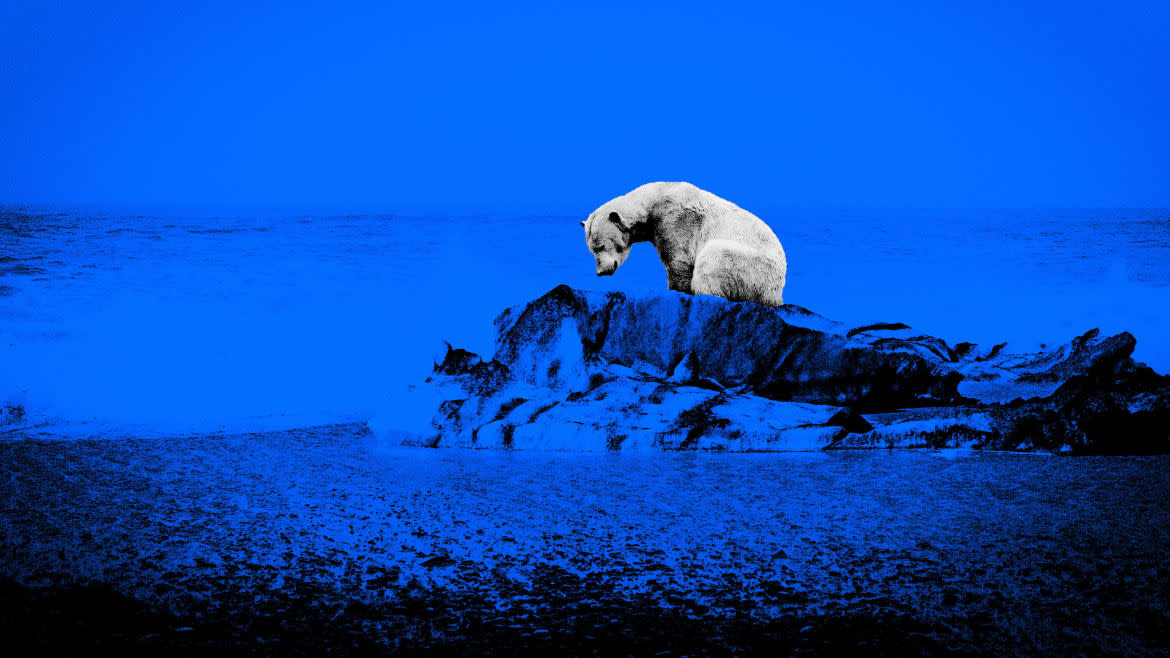The Arctic’s Summer Sea Ice May Be Completely Gone After 2030

As the summer rolls in and another round of record-breaking temperatures are set to inundate the planet, scientists have just issued another dire warning for us all: there may no longer be an Arctic left in as little as a decade from now—at least, not as we know it. In a new study published in Nature Communications on June 6, an international team of scientists report that the Arctic may be completely sea ice-free for the rest of its summers by the 2030s—a full decade before previous projections.
Global warming caused by human activity would account for 90 percent of this disappearance. (Shocker, we know.)
Though incredibly alarming, the findings aren’t particularly that surprising. Since Arctic sea ice began being measured by satellites in 1979, summer Arctic ice has shrunk by about 13 percent every decade. In 2021, it was at its lowest extant on record.
New U.N. Report Is Most Radical Call Yet for Climate Justice
The findings are pretty grim. They don’t really suggest that anything can be done to reverse this trend—that this outcome is likely to occur sometime between 2030 and2050, “irrespective of emission scenarios.” The researchers added in the paper: “These results emphasize the profound impacts of greenhouse gas emissions on the Arctic, and demonstrate the importance of planning for and adapting to a seasonally ice-free Arctic in the near future.”
In other words, the best thing to do now is to simply make preparations for ice-free summers in the North Pole, and hope that scary reality is enough to scare us into mitigating continued greenhouse gas emissions.
The new findings were made from an analysis of observational data collected between 1979 and 2019, used to predict climate models moving forward. Though there are natural causes that will contribute to increased temperatures (such as solar and volcanic activity), the researchers spare no indictment that human activity will be the primary driver that melts Arctic ice in the warmer seasons.
Antarctica Is Running Out of Ice and You Should Be Terrified
How bad could this be? Well, the loss of Arctic ice undoubtedly means higher sea levels, and this in turn would only serve to accelerate further warming in the Arctic and elsewhere. Delicate ecosystems could be irretrievably lost. And it could also exacerbate storm systems that hit the rest of the world, creating worsened natural disasters and floods that could kill thousands and leave millions without food or shelter.
The authors of the paper didn’t mince their words: “This would affect human society and the ecosystem both within and outside the Arctic,” they wrote.
That doesn’t mean all is lost. While an ice free summer in the Arctic will have repercussions, we can still prevent worst case scenarios from coming to fruition. We just have to act now.
Get the Daily Beast's biggest scoops and scandals delivered right to your inbox. Sign up now.
Stay informed and gain unlimited access to the Daily Beast's unmatched reporting. Subscribe now.

